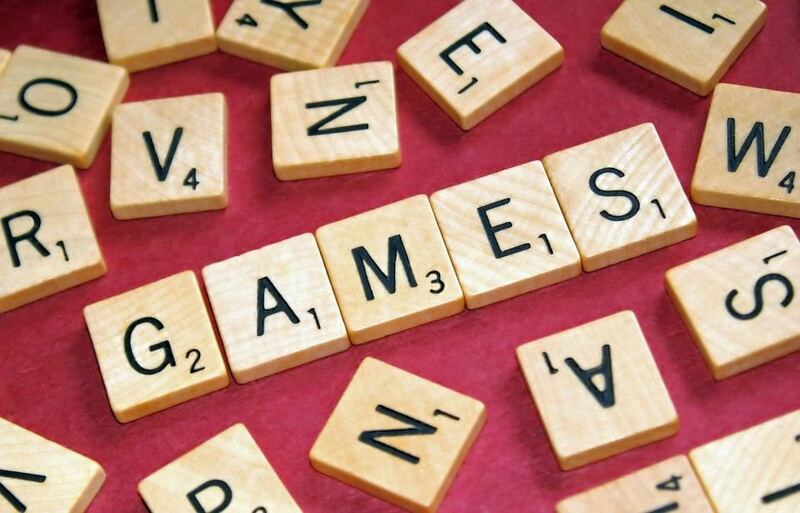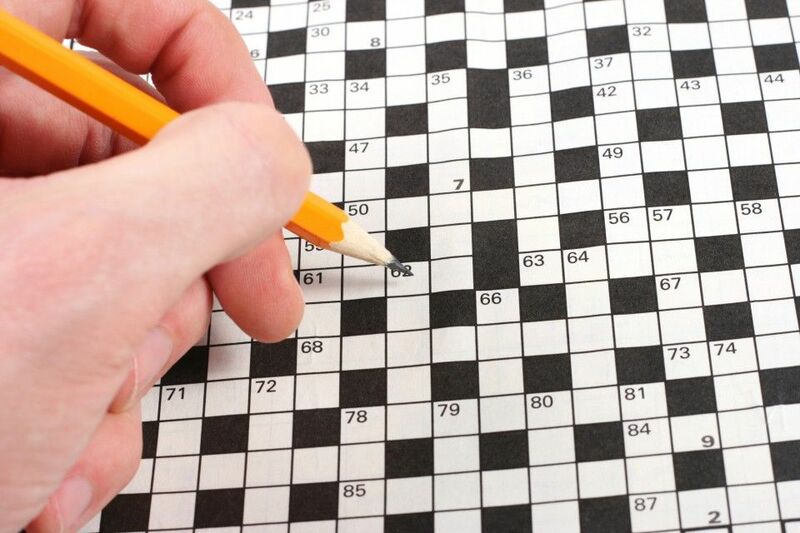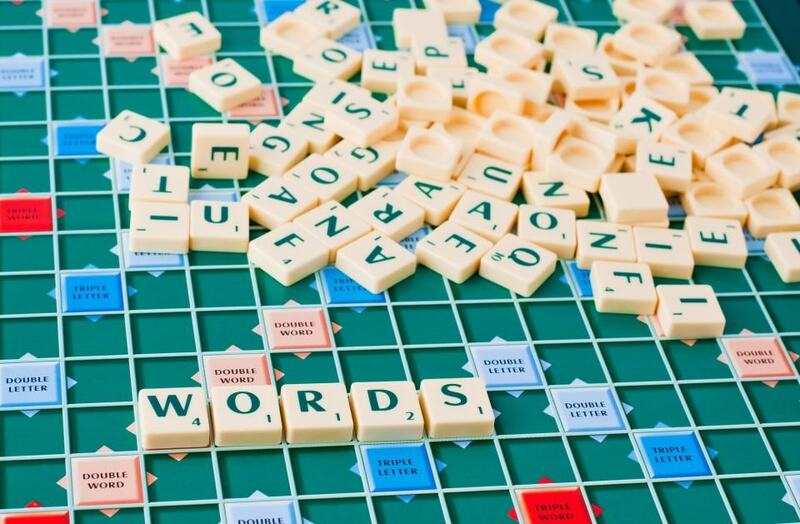Games that use words and letters for puzzling challenges have been around for a long time. Just look at Scrabble, the crossword board game loved by generations that was first created in the 1930s. Other letter-scrambling games like Bananagrams have been popular for a long time also, and recently, online word games have enjoyed a huge boom in popularity.
One example is Words With Friends, a game that brings the familiar format of Scrabble into a mobile app. Another is Wordle, which exploded onto the scene in late 2021, gaining millions of players in just a few months. People love these word games for many reasons, including the personal challenge, competition with friends, and the simple satisfaction of solving a puzzle.
Word games can do more than just entertain, however, they can make you smarter by exercising several mental skills. From improved spelling and vocabulary to better memory — and even advancement of high-level skills like reading comprehension and strategic thinking — evidence shows that word games work to train your brain; here’s how.
Concentration and Focus
A common complaint in the age of mobile apps and social media is that technology is shortening our attention spans. Whether or not that is the case (and there is evidence to the contrary), you may often wish for better ability to focus on work or other tasks that matter to you. Improving your attention span is possible, and can sometimes be as simple as removing distractions or taking a short break. Training your brain to focus longer is another method that can work, however, and playing word games is one way to do that.
According to psychologist Dr. Kim Willment in an interview with Harvard Health Publishing, “There is evidence that a person's ability to pay attention can be improved by progressively pushing the person to higher levels of performance. So if you reach a certain level of sustained attention, pushing it to the next level can help improve it, and this may translate to everyday life." Therefore, playing a game like Wordscapes that encourages progression through various levels can help improve your focus on real-world tasks that require concentration.
Memory Recall
What we typically refer to as “memory” is a combination of three distinct stages as described by psychologists: encoding, storage, and recall. “Encoding” is the process of gathering information and relating it to what we already know. “Storage” is holding that information for use later, and “recall” is the actual retrieval of that information when it becomes relevant. Each of these stages can be improved in different ways, and all are crucial for a good memory.
For the most part, word games rely on information that you’ve already encoded and stored — you can’t come up with a word that you’ve never seen before. Therefore it is recollection that matters most in word games. Memory recall is what enables you to think of possible words even when letters are missing, and this same skill applies to real-life problems. Examples would be recalling information when it matters on a test, or — in a broader sense — retrieving old information and being able to apply it to new situations.
Spelling
The English language is complicated, especially when it comes to spelling. Although we study for years in school and many of us read thousands of words a day, more than half of Americans struggle with spelling. You may not think this is a problem because of the prevalence of spell check and autocorrect, but spelling remains essential for reading and writing proficiency, especially for children who are developing these skills.
Knowing the rules of spelling, and their exceptions, is critical for quickly identifying words and for processing new ones. If a student has to think too hard about the arrangement of letters in each word, spelling can get in the way of effective comprehension and composition.
Spelling is notoriously frustrating and difficult to teach, however, and many schools are de-emphasizing spelling in their curriculums. That’s why word games can be especially beneficial for kids, to make spelling more fun and to gain an advantage in the classroom. As a student’s spelling starts to come more naturally, then he or she can better concentrate on the creative aspects of reading and writing.
Reading Comprehension
Requiring more than just spelling skills, reading comprehension is about interpreting the meaning of words and relating them to what you already know. This requires a combination of many proficiencies, but the foundations are skills that word games also rely on. Here are five basic skills for reading comprehension, based on education research, that you can strengthen by playing word games:
- Decoding: This is the ability to determine how letters relate to form a word, and to see how words relate to form sentences and paragraphs.
- Sequencing: Comprehension requires identifying the beginning, middle, and ending of sequential ideas, even when the components are presented out of order.
- Memory recall: Understanding how new material relates to what’s already been read requires quick and effective recall of information.
- Inferencing: This is the ability to understand the information given and use it to fill in what’s missing or predict what will happen in the future.
- Vocabulary: Knowing a lot of words by memory is important for fluent reading, and along with that comes the additional ability to infer meanings of unfamiliar words based on the context in which they appear.
Word games use all of these same skills to interpret jumbled letters or to fill in what’s missing. Of course a bite-size game like Wordle can’t exercise your mind quite as well as reading a whole novel, but you can’t read a novel a day, either. What you can do is keep those mental skills sharp by playing a daily word puzzle.
Pattern Recognition
The tendency to recognize patterns is considered a fundamental element of human intelligence, and scientists have identified this as a major advantage that sets our intelligence apart from that of other organisms. Not surprisingly then, computer coding for successful pattern recognition has been the major technological breakthrough enabling artificial intelligence to approach the cognitive ability of humans.
Pattern recognition is essential to our intelligence (and to that of AI) because it allows us to perceive complex information and either compress it or extrapolate it — making quick judgments about the present and also predictions about the future.
For example, pattern recognition skills are what allow you to read quickly by recognizing whole words instead of sounding out the letters every time. More broadly speaking, pattern recognition enables our exceptional human abilities to identify faces, create and operate tools, solve complicated problems, and believe in spiritual or supernatural influences.
Research shows that our brains are naturally good at pattern recognition, but also that our skills can be improved through cognitive training. Games that involve numbers or puzzles are good for this, and so are word games that require you to unscramble letters or pick out hidden words.
Problem Solving
In addition to bolstering your pattern recognition skills, word games can improve your problem-solving abilities by forcing you to think differently than you normally would to come up with a solution. For instance, you might assume that language skills — normally considered a creative proficiency — are the most important skills for playing word games. However, solving a word puzzle requires a blend of creative and analytical thinking that trains your brain to take a more diverse approach to solving problems.
Strategic Thinking
Strategic thinking is the mental process of planning to achieve certain goals, so it builds on typical reasoning and problem-solving skills. Strategic thinking involves anticipating future difficulties and making a plan to prepare for them, along with analyzing outcomes and using these to inform further strategy. As humans, we all think strategically at some level every day, but the process becomes much more difficult with goals that are particularly complex or long-term.
An example of strategic thinking in a word game, such as Scrabble, would be coming up with a word using the letters that you have while also intentionally blocking your opponent from playing a high-scoring word on their next turn. These skills can easily translate into the real world, as leaders in business and other fields must constantly think strategically to thrive among the competition.
Other Benefits of Word Games
Playing word games can have additional benefits even beyond improving your ability to solve problems and think strategically. Evidence suggests that these kinds of games can actually make us feel better and can help promote our long-term cognitive health.
Improved Vocabulary
Although most word games do not require an extensive vocabulary, you’ll certainly be better at games like Scrabble and Words With Friends if you have a larger mental bank of words to choose from. Therefore, playing these games is both a reason to learn more words and a method for learning them, especially if you use an online word finder for help. Improving your vocabulary will not only make you sound smarter, but has the real benefits of improving your reading, writing, and everyday communication skills.
Stress Relief
For an example of how word games can provide relief from stress, look no further than the popularity of Wordle during the COVID-19 pandemic. With millions of people playing the game daily, psychologists have commented on some calming effects that the game can have.
One benefit comes from the simple ritual of playing daily, which builds an element of certainty into each day, and that helps combat anxiety. Then there is the social aspect of games like Wordle, in which you face the same puzzle as everyone else and you can easily share your scores online.
Another example of a social game is Words With Friends, which lets you interact with people even if you can’t see them in person. And finally, there is the little dose of dopamine that comes with solving a word puzzle, and that neurological stimulus is proven to make you feel better.
Cognitive Health
As people age, it’s unavoidable that they lose some of their mental “sharpness.” This is to say that some cognitive abilities decline with time. Becoming more forgetful in old age is common, but research shows that even in your 20s or 30s you may start to experience declines in perceptual speed, or the time it takes to pick up on information or react to stimuli.
The good news is that brain-training games including word games can help to keep your mind sharp, even in old age. Studies show that older adults who regularly play word puzzles tend to perform better on tests of cognitive function than those who don’t. It’s never too early to exercise your brain, so no matter your age, you can enjoy the many benefits of word games just by playing your favorites a few times per week.



